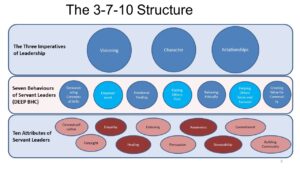How to overcome the trap of ‘Winning Too Much’- The need to win at all costs and in all situations

Is Winning Important?
Yes, it benefits our development and quality of life. It may help us live longer. Winning does build confidence especially when that winning represents a true accomplishment; (i.e. beating a worthy opponent). Winning is a mindset shaped by an aptitude to shake off the disappointment you face.
Winning in life means living authentically and finding joy and purpose in the journey. It also means continuously evolving through personal growth, challenging self, competing with self and thriving to be a better version of self.
 Whilst winning is important, we must also be acquainted with losing to support our reason to win.
Whilst winning is important, we must also be acquainted with losing to support our reason to win.
 Losing affords us the gift of ascending the ladder of excellence while developing strength of character. It forces us to question our motives and many times we return stronger than before.
Losing affords us the gift of ascending the ladder of excellence while developing strength of character. It forces us to question our motives and many times we return stronger than before.
Marshall Goldsmith, the noted author and leadership coach lists winning too much as habit #1 of the 20 habits that will derail leaders. [i]
Winning too much is #1 challenge for most people
- It underlies nearly every other behavioural problem
- Arguing and putting other people down=> we want our view to prevail and position them beneath us
- Play favourites=> to gain allies so ‘our side’ has an advantage.
- Overlooking weakness=> less open to feedback
- Constant pressure to maintain winning streak by ignoring others and even behave unethically.
- Leading to toxic competition
- An unhealthy obsession with winning can foster a toxic competitive environment, alienating colleagues, partners and even loved ones, demeaning them, stabbing behind their back, spreading incorrect, unethical and unwarranted information about them and seeking sympathy for self.
Reinafrida Rwezaura, a dynamic entrepreneur and youth advocate gives beautiful insights on how to avoid the pitfalls of the winning trap[ii].
To avoid the pitfalls of the winning trap, here are some tips:
- Embrace a growth mindset
- Keep seeking feedback
- Step out of comfort zone
- Redefine success
Can Servant Leadership Attributes help us avoid the pitfalls of the winning trap?
YES, the above pointers can be mapped with 3 major categories of the Servant Leadership 3-7-10 framework[iii]. The 3-7-10 structure is explained in Dr. Madana Kumar, PhD’s blog that you can find here

3 Major Categories:
- Vision related– Foresight, Conceptualization
- Character related– Awareness, Healing and Stewardship
- Relationship related– Empathy, listening, commitment to growth of others, building community and persuasion.
- Persuasion: Servant Leaders do not use positional authority in making and communicating decisions. They seek to convince others, rather than coerce compliance. They demonstrate all the other Servant Leadership attributes to reach a position where the followers choose to walk with the leader by their own free will.
WIN as a team, as an organization

When leaders invest in their people, based on the Servant Leadership attributes, we win as a team. This builds leaders at all levels in the organisation. Then the leader does not have to focus so much at “winning” because the team will do it for them. This is the sure shot solution and cure for the desire to Win-Too-Much.
______________________________________________________________
References
[i] Marshall Goldsmith | What Got You Here Won’t Get You There | pp 45-48 | MJF Books | New York | 2007
[ii] Reinafrida Rwezaura – The Winning Trap: Why winners Can Crash and Burn, accessed at https://medium.com/@reinafridarwezaura/the-winning-trap-why-winners-can-crash-and-burn-7fdb065632cf#: on 31st July 2024
[iii]The “How” of Servant Leadership | 3-7-10 Framework | Dr. Madana Kumar, PhD https://leadyne.com/the-3-7-10-framework-mapping-2
______________________________________________________
 Author: Vaishnavi Karhadkar is an Experienced Delivery and Program Executive with a demonstrated history of working in the Information Technology and Services Industry. Her passion for the concept of Servant Leadership drew her to author this article. You can connect with Vaishnavi here
Author: Vaishnavi Karhadkar is an Experienced Delivery and Program Executive with a demonstrated history of working in the Information Technology and Services Industry. Her passion for the concept of Servant Leadership drew her to author this article. You can connect with Vaishnavi here
 With expert inputs from Dr. Madana Kumar, PhD. You can connect with Madana here or write to him here
With expert inputs from Dr. Madana Kumar, PhD. You can connect with Madana here or write to him here
.



